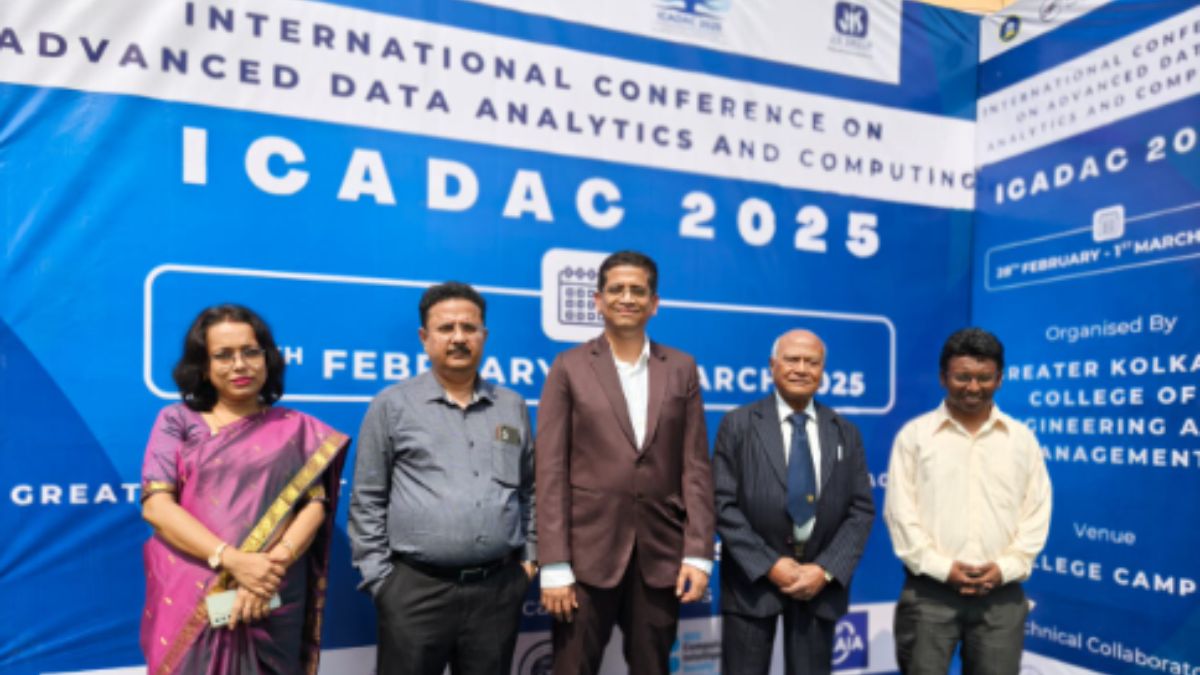A Major Breakthrough in Artificial Intelligence Research
In a world increasingly dependent on secure digital infrastructure, two researchers have made a significant impact on cybersecurity with their cutting-edge work in artificial intelligence. Rahul Vadisetty and Anand Polamarasetti were recently honored with the Best Paper Award at the prestigious International Conference on Artificial Intelligence, Data Analytics, and Computing (ICADAC 2025), hosted by Taylor and Francis. Their award-winning research, “AI- Driven Anomaly Detection in Secure Database Access Logs Using Python,” is a major step forward in identifying cyber threats before they can cause damage.
A Highly Selective Conference
Held at the Greater Kolkata College of Engineering & Management (GKCEM), ICADAC 2025 is one of the most competitive conferences in AI and cybersecurity research. This year, the conference committee received 235 submissions, yet only 19% were accepted after rigorous peer review. With such an intense selection process, Vadisetty and Polamarasetti’s paper stood out for its innovation, real-world applicability, and potential to enhance cybersecurity strategies worldwide.
How Their Research is Changing the Game
Traditional database security measures rely on outdated rule-based systems and statistical models, which are often incapable of detecting modern cyber threats. Vadisetty and Polamarasetti’s research offers a machine learning-driven alternative, providing a more adaptive and accurate anomaly detection system. Their research applies unsupervised learning techniques, such as autoencoders and isolation forests, to detect unusual activity in database logs. These techniques significantly reduce false positives and improve accuracy compared to conventional methods. The study was validated using the Los Alamos National Laboratory (LANL) Cybersecurity Dataset, demonstrating the robustness of their approach in real-world settings.
Why This Work Matters
Cyber threats are evolving rapidly, and organizations require real-time solutions to protect
sensitive information. Vadisetty and Polamarasetti’s model offers several key advancements:
1. AI-Powered Threat Detection – Their approach leverages deep learning to continuously adapt to new types of cyber threats.
2. Superior Accuracy – The research shows that AI-based methods outperform traditional rule-based security models, especially in reducing false alarms.
3. Blockchain and Federated Learning Integration – The study explores future improvements such as integrating blockchain technology for immutable audit logs and federated learning to enhance security across multiple institutions.1
What’s Next?
The impact of their research is not limited to database security. Their AI-driven anomaly detection framework has potential applications in financial services, healthcare, and cloud security, where real-time monitoring of user activity is essential. One of the next steps for cybersecurity research is making AI-powered anomaly detection even more scalable and interpretable. Explainable AI (XAI) techniques could help security analysts understand how AI models detect anomalies, increasing trust and usability. Additionally, real-time AI models could be deployed in organizations to detect cyber threats as they happen, offering proactive defense rather than reactive security measures.
A Well-Deserved Honor
Winning the Best Paper Award at ICADAC 2025 highlights the importance of Vadisetty and Polamarasetti’s contributions to the cybersecurity landscape. Their work represents a significant shift in how organizations can protect their data, offering a future-proof solution against evolving cyber threats.
As cyberattacks become more sophisticated, their research provides a scalable, intelligent, and efficient approach to anomaly detection, ensuring that businesses and governments stay one step ahead of malicious actors. Their AI-driven security model is not just an academic achievement, it is a crucial innovation for the digital security of tomorrow.
For more information on ICADAC 2025, visit: – https://ICADAC 2025.in/index.php












